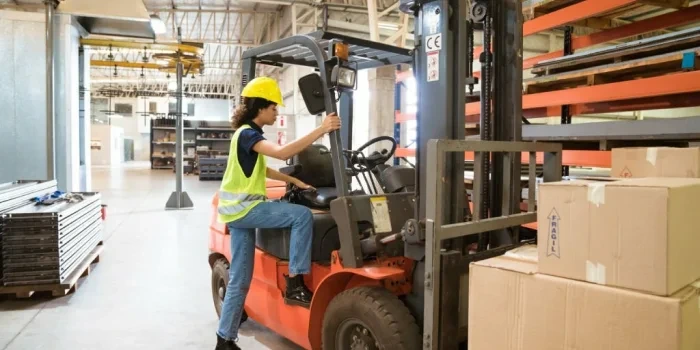Small businesses in Denver, Colorado, often struggle with the challenge of optimizing their logistics and supply chain operations. The competitive landscape and the growing expectations of customers have made efficiency a key factor in success.
One logistics strategy that has gained popularity is cross-docking. In this blog, we’ll explore whether cross-docking is the right fit for your small business in Denver and how it can help you streamline your operations and boost competitiveness.
What Is Cross-Docking?
Cross-docking is a logistics technique that uses the immediate transfer of goods from inbound trucks or containers to outbound vehicles with minimal or no storage in between. Basically, it’s a method of “dock-to-dock” movement that minimizes handling and storage time, allowing products to reach their final destination faster.
How Can Cross-Docking Help Small Businesses
Reduced Warehousing Costs: Small businesses often struggle with the high cost of warehousing, which includes rent, utilities, labor, and equipment maintenance. Cross-docking significantly reduces or even eliminates the need for long-term storage, saving you money on warehousing expenses.
Faster Delivery and Improved Customer Satisfaction: In the age of e-commerce, customers expect fast delivery times. Cross-docking allows you to streamline the movement of products, reducing lead times and meeting your customers’ expectations for quicker deliveries.
Optimized Inventory Management: Effective inventory management is essential for small businesses to avoid overstock and stockouts. Cross-docking helps maintain a lean inventory, reducing carrying costs and the risk of obsolescence.
Lower Labor Costs and Improved Productivity: Small businesses can benefit from the reduced labor costs and improved productivity that cross-docking offers. Less handling and storage time means that your staff can focus on other value-added tasks, enhancing overall efficiency.
Better Supply Chain Visibility: Cross-docking improves supply chain visibility by simplifying and streamlining operations. Real-time data helps you make informed decisions regarding routes, shipping methods, and product allocation.
Now that we’ve highlighted the advantages, let’s dive into the factors that determine whether cross-docking is the right choice for your small business in Denver.

Factors to Consider Before Implementing Cross-Docking for Your Small Business in Denver, CO
- Type of Products
Fast-Moving Goods: If your small business deals with products that have a high turnover rate and are in constant demand, cross-docking can be an excellent fit. Items like fresh produce, perishable goods, or popular consumer electronics can benefit from this strategy.
Fragile or Perishable Goods: Cross-docking can be particularly advantageous if you handle fragile or perishable items. Minimizing handling and storage time reduces the risk of product damage or spoilage.
Diverse Product Range: If you offer a diverse range of products with varying demand levels, cross-docking allows you to allocate resources efficiently and reduce the risk of overstocking or stockouts.
- Inventory Management
Advanced Inventory Management Systems: If your small business already employs advanced inventory management systems or is willing to invest in them, cross-docking can be effortlessly integrated, enhancing your control over stock levels and order fulfillment.
Demand Forecasting: If your business is capable of accurate demand forecasting, cross-docking becomes a powerful tool to meet the expectations of your customers and optimize your inventory.
- Supplier and Carrier Relationships
Reliable Suppliers and Carriers: Successful cross-docking relies on a network of reliable suppliers and carriers who can deliver products on time and in the right quantities. Strong relationships in your supply chain are crucial for the effectiveness of this strategy.
Local and Regional Partnerships: In Denver, the efficiency of cross-docking can be further improved by collaborating with local and regional suppliers and carriers. Consider using local resources to streamline transportation and reduce costs.
- Facility Location
Proximity to High-Demand Areas: If your small business is located near high-demand areas in Denver, cross-docking becomes even more advantageous. Fast access to the market can help you meet the needs of your customers promptly.
Compliance with Local Zoning Regulations: Ensure that your chosen facility complies with local zoning regulations. Denver has specific zoning rules that may impact your facility’s location and operations.
- Seasonal Considerations
Denver experiences various weather conditions, including snow and icy conditions in the winter. Your cross-docking strategy should be adaptable to these seasonal variations to avoid delays and disruptions.
- Regulatory Compliance
Keep up to date with local regulations and permitting requirements. Ensure that your cross-docking operations comply with all relevant standards and regulations in Denver.
- Environmental Responsibility
Denver is known for its commitment to sustainability. If your small business in Denver is equally committed to eco-friendly practices, consider how cross-docking can be aligned with sustainability goals. This may involve using energy-efficient equipment, optimizing routes to minimize emissions, and exploring renewable energy sources.
Conclusion
Cross-docking can be a game-changer for small businesses in Denver, Colorado, provided that it aligns with your product characteristics, inventory management capabilities, supplier relationships, and facility location.
Consider the unique aspects of your small business and the local market in Denver to make an informed decision on whether cross-docking is the right choice for you. When implemented strategically, cross-docking can help your small business thrive in Denver, Colorado.
Curious if using a Cross Docking Service in Denver, CO is right for your small business in Denver? Let Mile High Delivery & Cold Storage assess your needs and tailor a cross-docking solution for you.
Contact us for a consultation today!

